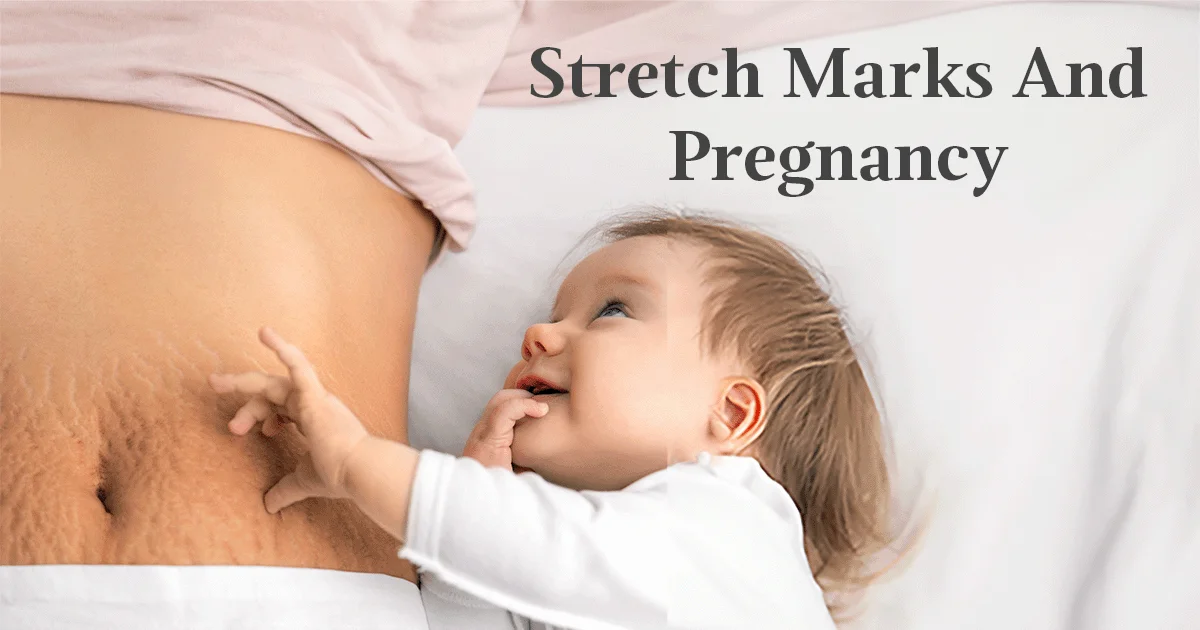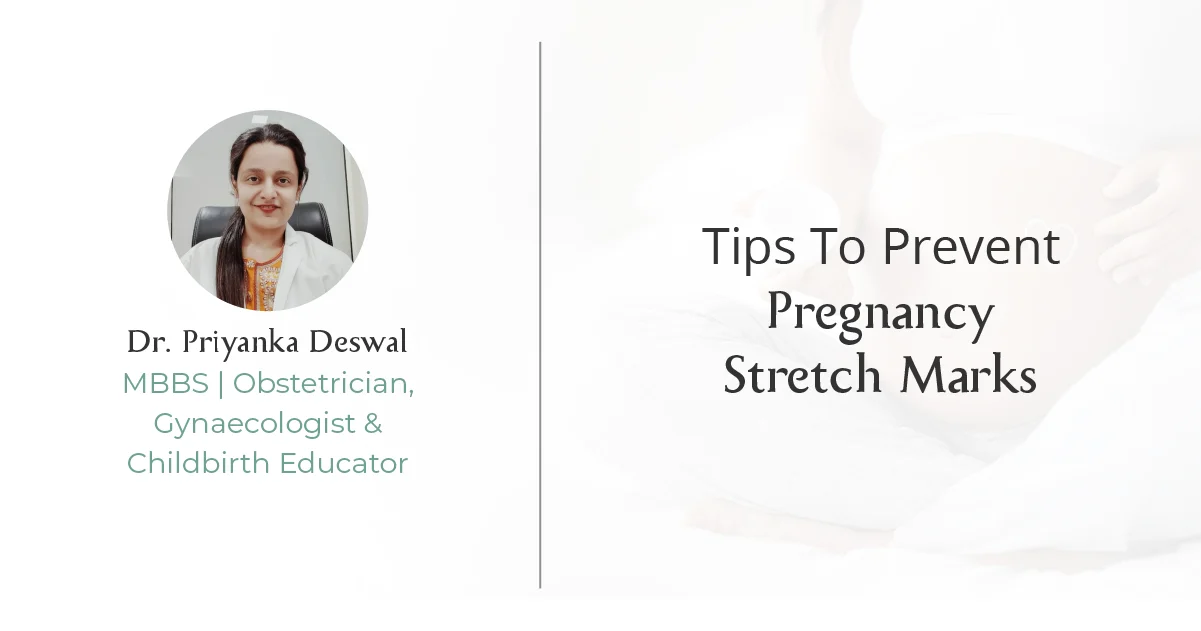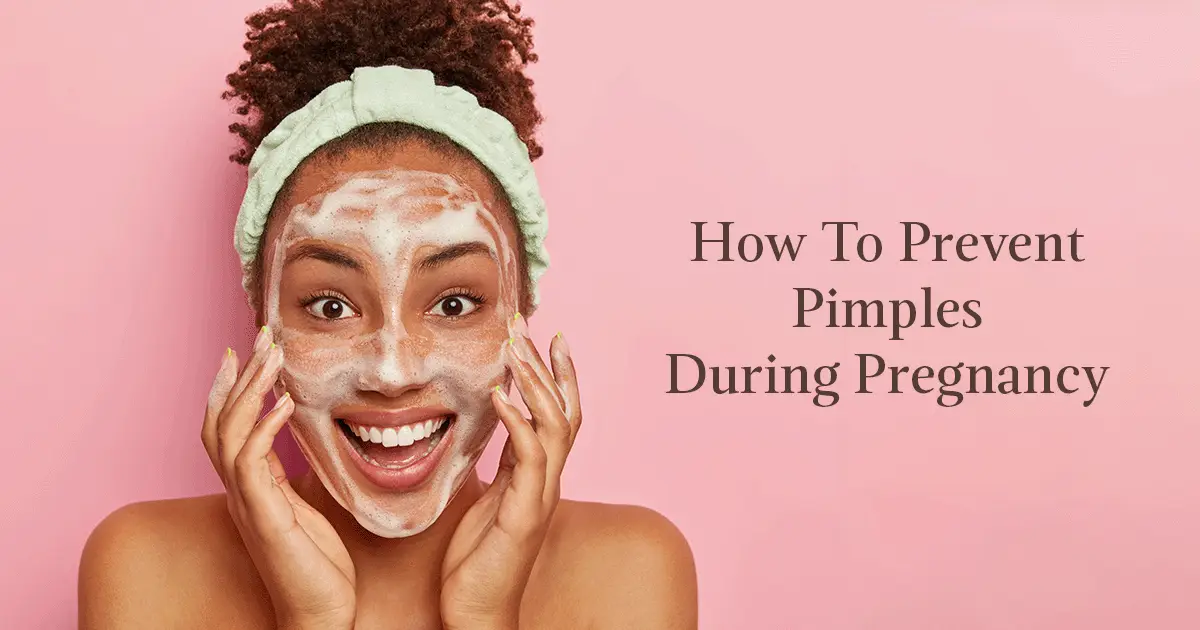
Do you know that acne vulgaris is the most common skin problem that affects a staggering 9.4% of the global population?1 The numbers look unexpected, right? From embarrassing breakouts to painful cysts, acne can take a toll on your self-esteem and overall well-being. Are you one of those people? Have you ever thought if this is a common skin condition, or have you gone a little deeper in knowing what causes it? Because sometimes the reasons for such breakouts are more than skin deep. It could be hormonal acne!
New to this term? Continue reading this full-fledged blog where we will discuss everything related to hormonal acne, from its causes and symptoms to treatment and prevention strategies. So, let’s get started!
Post Contents
[hide]
What Is Hormonal Acne?
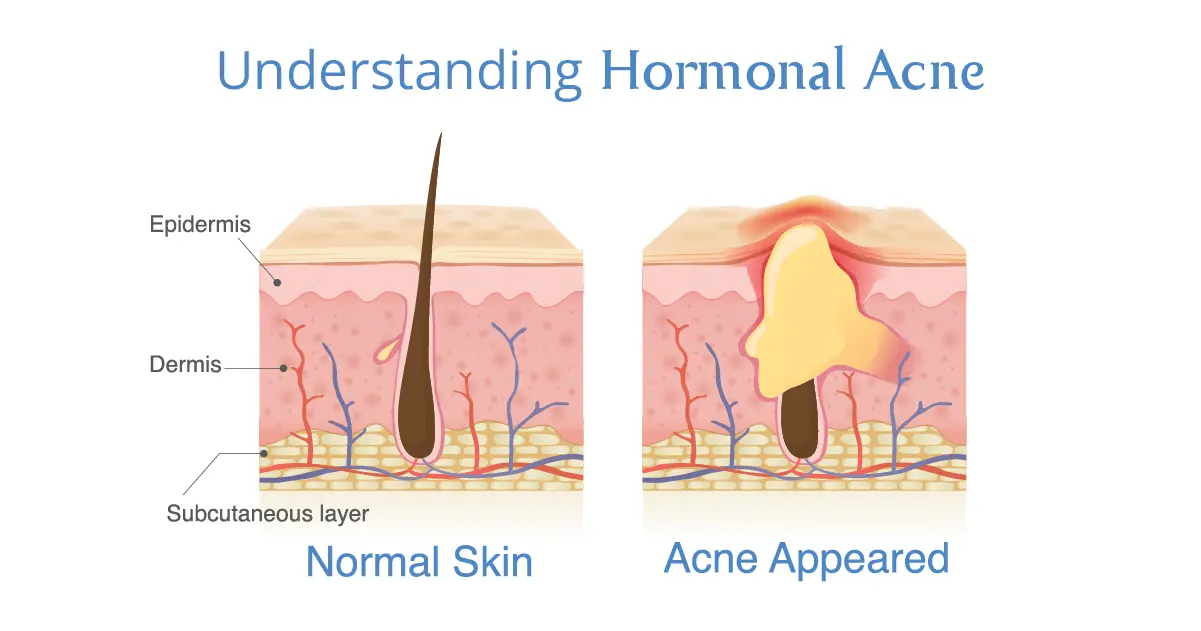
Also referred to as adult acne, hormonal acne is a common skin problem that affects people between the ages of 20 and 50. It manifests as various types of bumps on the face, shoulders, chest, and back, including pimples, blackheads, whiteheads, and cysts. Several factors may lead to acne breakouts in adults. However, the root cause accounts to be the production of excess sebum in the oil glands, leading to these unwanted skin imperfections.2 3
Who Does It Affect?
It affects both men and women irrespective of gender. The majority of cases are recorded in women in comparison to men.2
How Common Is Hormonal Acne?
According to a study published in the Indian Dermatology Online Journal, researchers found that- 4 5 6
- Adult female acne patients contribute to a significant portion of dermatology cases. Around 56% of females have late-onset acne, and 43% present with persistent acne.
- 43.2% of women with PCOS had moderate acne, while 27.2% had severe acne.
- Another study conducted in North India found that 81% of women with acne had PCOS, while 30% of women with acne vulgaris had PCOS. The prevalence of PCOS was higher among women with acne, especially those with irregular menstrual cycles, hirsutism, and obesity.
- Overall, hormonal acne is a significant concern in India, particularly among women with PCOS and other hormonal imbalances.
What Is Fungal Acne Vs Hormonal Acne?
Fungal acne and hormonal acne are easily mistaken for each other, as both develop in the hair follicles. However, they have distinct causes: fungal acne is triggered by an overgrowth of yeast, while hormonal acne is driven by excess sebum production. Fungal acne typically presents with whiteheads, itchiness, and often leads to redness, irritation, and inflammation. 2
What Causes Hormonal Acne?
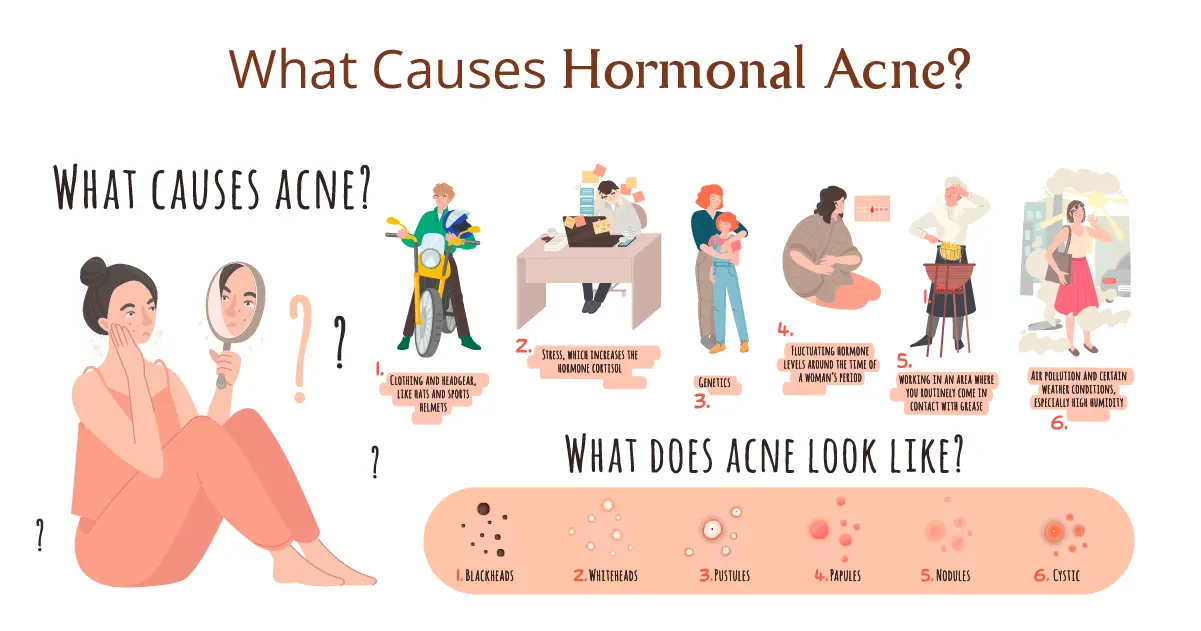
Acne occurs when pores become clogged, and hormonal acne is no exception. Hormonal fluctuations can trigger an increase in oil production, leading to clogged pores. But what exactly causes these clogs? It's a combination of three key factors: 2 7 8
- Excess sebum, a natural oil produced by the sebaceous glands in your skin.
- Dead skin cells can get trapped in pores.
- Bacteria that thrive in these clogged pores.
When these factors come together, they can lead to acne breakouts. When it comes to hormonal acne, the excess oil production plays a significant role in clogging pores and setting the stage for acne to develop. 2
Is Hormonal Acne Caused By Pregnancy?
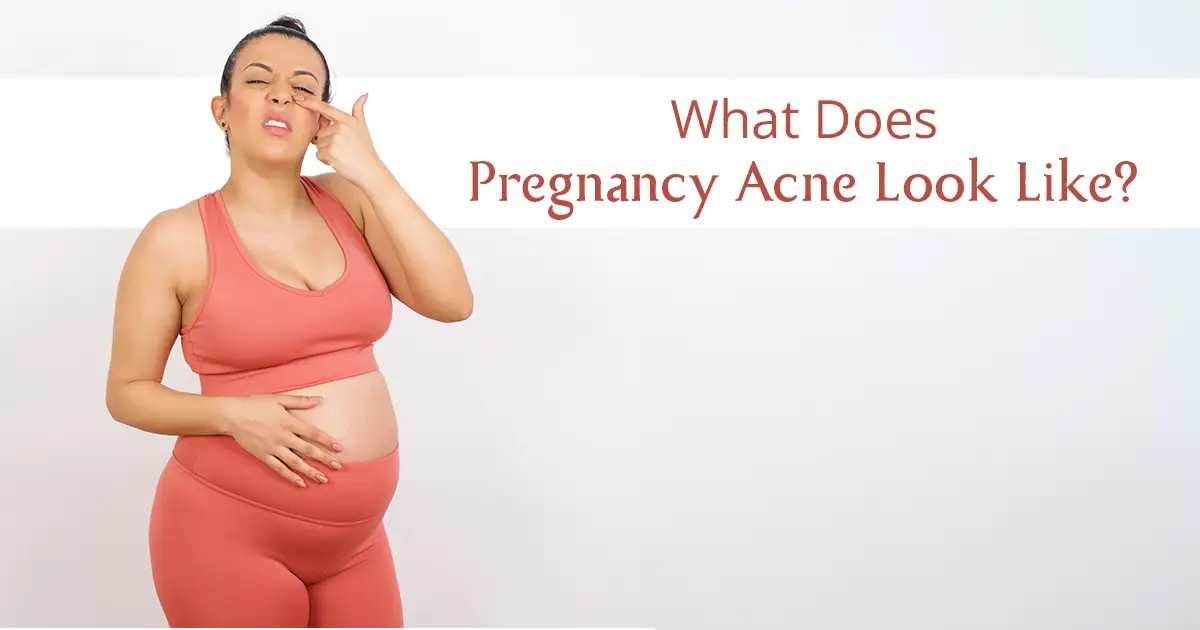
Yes, pregnancy may trigger acne in some women. However, the good news is that acne often improves as pregnancy progresses. While managing acne is crucial, it's essential to be cautious about treatment options. Certain acne treatments, such as topical retinoids, salicylic acid, and isotretinoin, are not recommended during pregnancy. To find a safe and effective solution, consult your doctor about the best acne treatment options for you, helping you reduce and eliminate breakouts while ensuring a healthy pregnancy. 2
If you're pregnant and dealing with hormonal acne, consider switching to gentle, pregnancy-safe skincare options.
- Try AreoVeda’s Skin Clarifying Serum. Especially formulated for expectant moms, it is enriched with amazing ingredients like Canadian Willowherb, black tea leaf extract, sodium hyaluronate and many others. All of them help balance oil, calm inflammation, and reduce blemishes.
- Pair it with our AreoVeda’s Moisturising Spray Lotion, a lightweight, non-greasy moisturiser that soothes sensitive skin, keeping it nourished all day long. Both products are EWG Verified, Ecocert Certified, and cellularly tested for safety during pregnancy, making them ideal for hormonal skin changes.
What Are The Symptoms Of Hormonal Acne?
Acne can cause painful, inflamed lesions that appear as red, sore, or tender bumps on the skin. These lesions tend to pop up in areas like the face, particularly the cheeks, but can also spread to other parts of the body, including the neck, back, shoulders, and chest. Hormonal acne can manifest in various forms, such as:
- Whiteheads: small, white bumps
- Blackheads: small, dark spots
- Papules: raised, pink bumps (usually 2-5 mm in diameter)
- Pustules: pus-filled bumps (typically 2-5 mm in diameter)
- Cysts: large, fluid-filled pockets under the skin
These lesions can be uncomfortable and unsightly, but understanding what they look like can help you tackle hormonal acne more effectively. 2
How Do I Know If I Have Hormonal Acne?
Diagnosing hormonal acne typically starts with a physical examination by a healthcare provider. During this assessment, they'll take a closer look at your acne and explore possible contributing factors. To get a thorough understanding, be ready to discuss: 2
- Your daily skin care routine and the products you use.
- Your stress levels and sleep habits.
- The medications you're presently taking.
- Any recent changes in your health, particularly hormonal shifts.
By examining your skin and discussing these factors, your healthcare provider can determine if hormonal acne is the culprit and develop an effective treatment plan. 2
How Do I Treat Hormonal Acne?
The right treatment for hormonal acne depends on the severity of the skin problem. Here are some common options: 2
- For mild cases with blackheads and whiteheads, topical creams like tretinoin can be effective. 2
- For inflammatory acne, a combination of treatments may work best, such as topical retinoids, antibiotics, or benzoyl peroxide. 2
- Moderate to severe acne may require oral antibiotics or isotretinoin (a powerful retinoid). 2
- For cystic acne, steroid injections (like intralesional triamcinolone) can provide relief. 2
Before you follow any treatment here, make sure you consult your doctor first. After examination, they will prescribe the right treatment based on your skin problem.
What Are Other Treatments For Hormonal Acne?
Daily skin cleansing helps maintain healthy skin and reduce acne.
- Birth control pills, or oral contraceptives, can regulate hormonal imbalances that trigger acne.
- A change in diet can help alleviate acne symptoms by reducing triggers.
- Laser or light therapy can target acne-causing bacteria and reduce inflammation.
When Should I Treat My Hormonal Acne?
Treating acne early is crucial to prevent prolonged breakouts, potential scarring, and emotional distress, helping you achieve clearer skin and confidence. 2
How Soon After Treatment Will Hormonal Acne Go Away?
Treating acne is a unique journey for each person, requiring patience and diligence. It can take around 4-6 weeks to notice significant improvements. So, stick with your treatment plan, even if results aren't immediate. This may help prevent new breakouts and achieve long-term skin clarity. 2
How Does Hormonal Acne Affect My Skin?
Hormonal acne triggers breakouts, which can manifest as red, inflamed, painful bumps or lesions on the skin. If left untreated, moderate to severe acne can lead to lasting scarring in the affected areas. 2
How Can I Reduce My Risk Of Hormonal Acne?
While hormonal acne can be unpredictable, you can take steps to minimise breakouts. 2
- Start by making lifestyle tweaks like reducing stress, getting quality sleep, and eating a balanced diet. 2
- Use non-comedogenic skincare products that won't clog pores. 2
- For persistent acne, consult a dermatologist to explore personalised treatment options. 2
Do I Need To See A Dermatologist To Treat My Hormonal Acne?
If your problem of acne is not going away, then yes, definitely! You must go and see a dermatologist for better clarity and assistance. 2
Conclusion
Hormonal acne isn’t just skin deep—it’s a sign that your body’s internal balance needs support. Whether you're going through puberty, pregnancy, or any hormonal shift, know that you're not alone. By understanding the root causes and choosing gentle, hormone-safe skincare, you’re already one step closer to reclaiming your skin confidence.
Therefore, listen to your skin, support your hormones, and let your natural glow shine through. Happy Skincare!







.webp)

